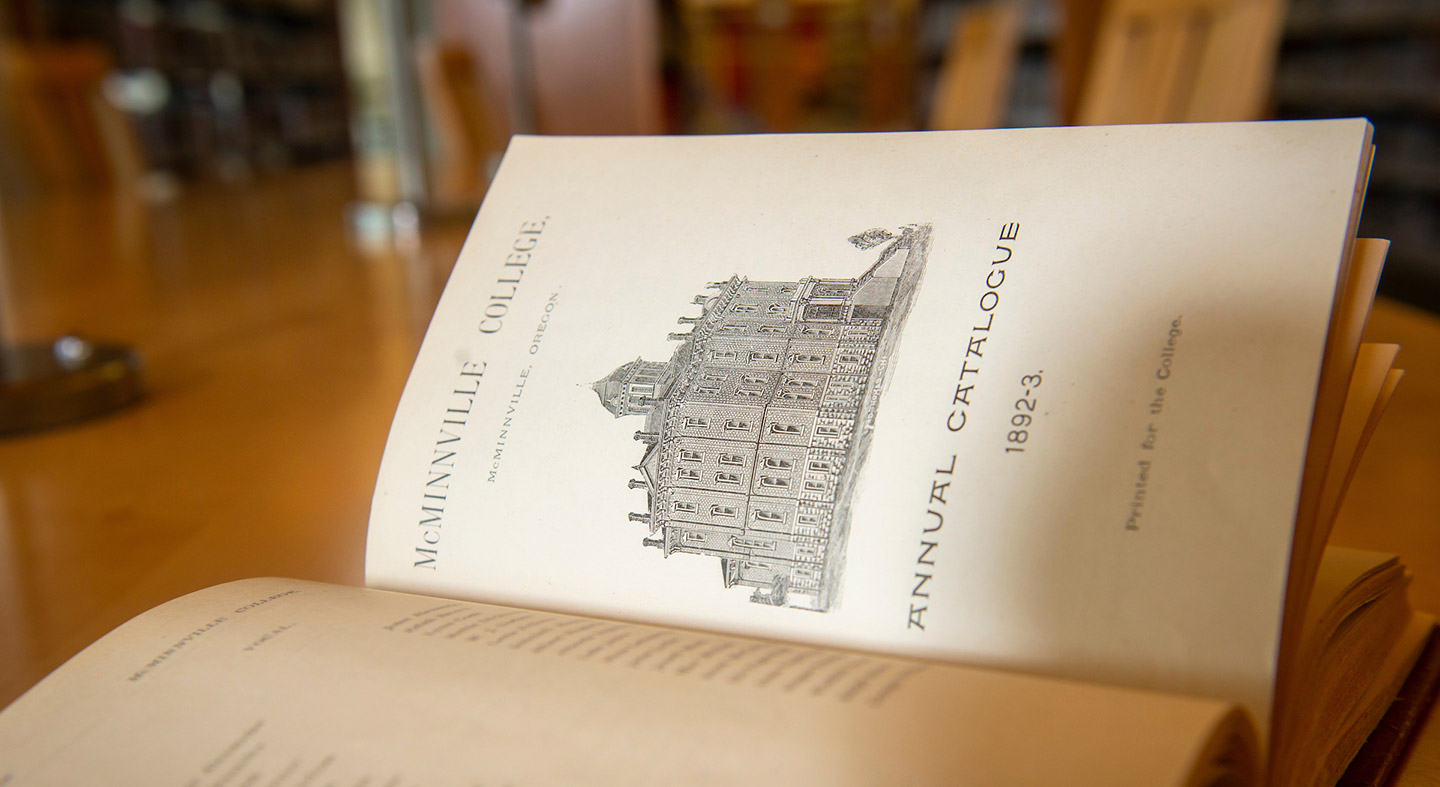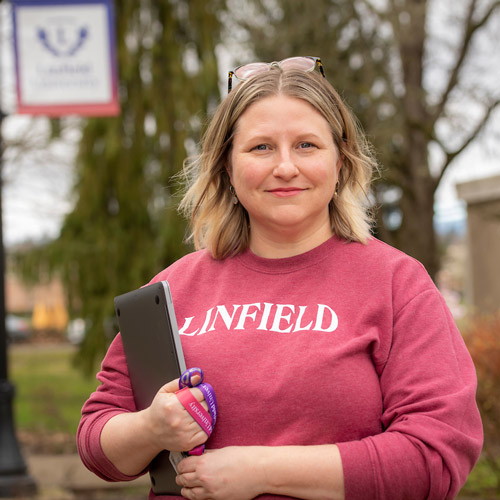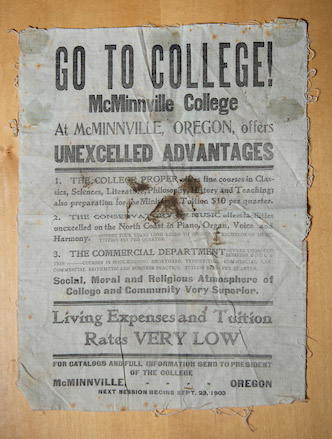
Happy 165th Birthday, Linfield!



No extracurriculars. No electives. No majors, even.
Would you want to be involved with a school like this? You likely already are!
One clear reflection of these changes can be found in early school catalogs.
The oldest catalog we have in the Archives is from 1873, when Linfield University was known as McMinnville College. That year, all but three of the 160 students were from Oregon, the proposed first-year curriculum was heavy on Greek and Roman history, and you could rent the use of the college piano for $3/term.
 If you made it through all four years of study, you’d graduate with a BA if you did well in your languages (German and French) and a BS if you didn’t. The goal of a McMinnville College education was to prepare young people to “grapple with and settle the great problems of life on the principles of eternal truth.”
If you made it through all four years of study, you’d graduate with a BA if you did well in your languages (German and French) and a BS if you didn’t. The goal of a McMinnville College education was to prepare young people to “grapple with and settle the great problems of life on the principles of eternal truth.”
This all seems miles away from the Linfield of today. But a closer look at the catalog reveals some similarities:
Sure, Linfield’s academic goals in 2023 differ somewhat. Our mission statement promotes “the rich texture of diverse cultures and varied ways of understanding” rather than mandating a set curriculum.
While the approach to education has changed over the past 165 years, the mission is the same: to equip students with the values and experiences that will lead to a successful life – personally and professionally.
About the author
Alyssa Ralston is the archives coordinator at Linfield University. She loves connecting Linfield students, faculty, staff, alumni and the public with all of the resources the archives has to offer! Alyssa holds a Master's in Library Science (MLIS) from Dominican University and a Bachelor of Arts from UC Davis.